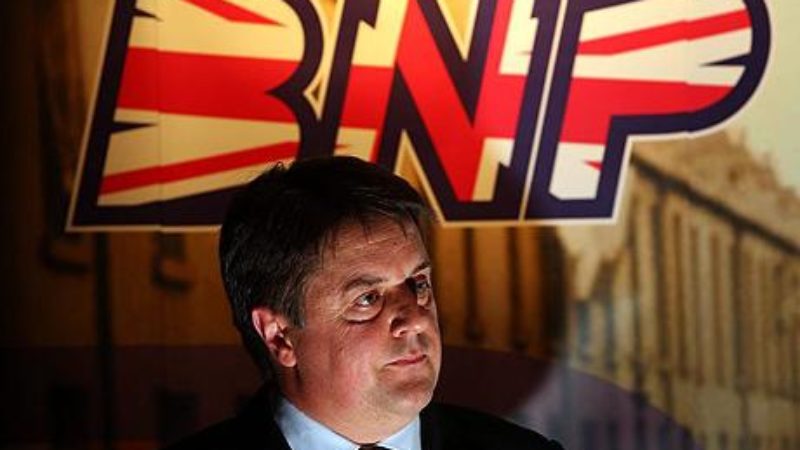

The first time I ever voted, the BNP (remember them?) received just shy of a million votes, and I ended up with Nick Griffin (remember him?) as one of my elected representatives. In terms of votes in that European election in 2009, they managed over a third of what Labour got. It is incredible, really, that just six and a half years later they have ceased to exist.
It could be that their failure to confirm registration details with the Electoral Commission is merely an oversight; they have long been every bit as incompetent as they are racist. With the name and branding of newly-defunct political parties reserved for two years, it may be that they goosestep back into existence sooner rather than later.
But, honestly, it doesn’t matter all that much if they do. If the BNP return, it will be as a zombie party, an electoral concept, ethereally sieg heiling from the eternal reich in the sky.
Following their success in the 2009 European elections, they suffered something of a disappointment in the following year’s general. On almost double the turnout, they received nearly half as many votes, falling to 564,000. In the 2014 Euros, that dropped substantially again, to 180,000. By last May, they were fielding just 8 candidates, and received only 1,667 votes – a decline of 99.7% from 2010. They were already a small rag-tag bunch of diminished losers before today.
There are plenty reasons for their sharp decline. An internal struggle over presentation was part of it. Nick Griffin had attempted a part-modernisation process within the party, representing them as a respectable politician in a suits, which was untenable as the UKIP bandwagon rolled into town. On the other side of the divide was the thuggish element Griffin wanted to restrain; they soon found a new home in the EDL.
So while the BNP’s disappearance does not mean their toxic ideas have gone with them, we should take heart from today’s news.
I grew up in a town, Blackburn, with a BNP councillor. Down the road, in Burnley, they became the main opposition on the council in 2003. I have seen first hand their infectious hatred and the divisions they exploit.
But I’ve also seen the ways they’ve been defeated. One of the reasons I felt compelled to join the Labour Party was the sight of ordinary people organising against fascists to beat them. Not in the streets – we’d seen for ourselves the race riots in 2001 and knew they made things worse, not better. We wanted to beat them in the ballot boxes.
When Nick Griffin appeared on Question Time in 2009, I don’t remember knowing anyone who thought he shouldn’t be allowed on. He was, after all, one of our elected representatives and most felt he should be held to account and scrutinised. It was only on moving to a London university a year later that I heard more widespread opposition.
And on the doorstep, it seemed to help. The level of publicity around it and meant people had watched it. They were now more familiar with what the BNP were actually about, rather than being a host for protest votes, and it was possible to converse with BNP voters about the party.
Did the problems that led to the BNP’s initial popularity go away? No. Is immigration no longer an issue? Of course it is. But when it comes to overcoming these ideas and the people who espouse them, let’s bear in mind that engagement works. And as we lay to rest the British National Party today, let’s remember the hard work normal Labour activists in places like Burnley and Barking put in that has led to this point.




More from LabourList
‘The Local Power Plan is launching an ownership revolution’
‘Working for an MP shouldn’t mean falling through the cracks of employment law’
‘A case for hope amid hard times’